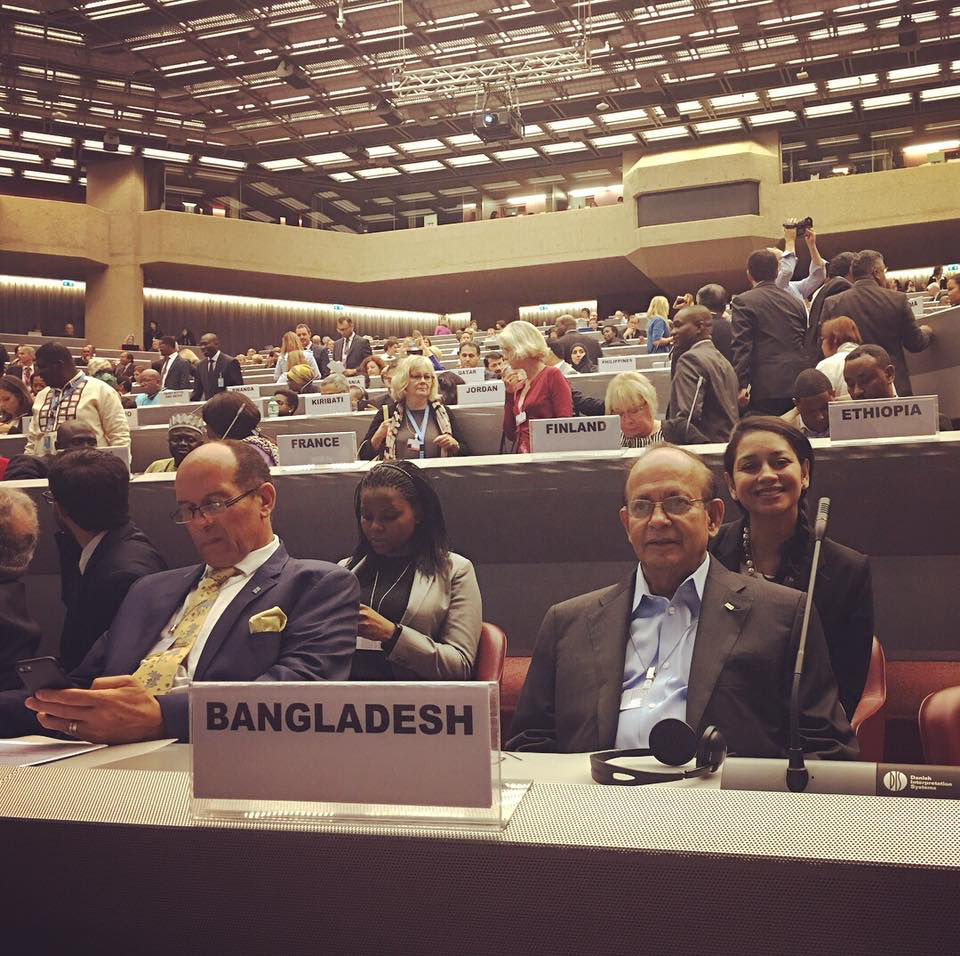One of my earliest memories of the highly toxic and dangerous metal, mercury, was with my older sister when we were kids in Bangladesh. We would break glass thermometers and play with the liquid mercury, fascinated by how it moved over our the tiny hands of a child. Our little minds could not even fathom the danger of what we were playing with.
Over twenty years later, I got to travel with the Bangladesh Delegation to Geneva, Switzerland to learn how the world is working together to eliminate the use of this chemical entirely.
According to the United Nations, Mercury is a highly toxic heavy metal that poses a global threat to human health and the environment.

Together with its various compounds, it has a range of severe health impacts, including damage to the central nervous system, thyroid, kidneys, lungs, immune system, eyes, gums, and skin.
The Minamata Convention on Mercury was the first new global Convention on environment and health adopted for close to a decade. Its name comes from the place in Japan where, in the mid-20th century, mercury-tainted industrial wastewater poisoned thousands of people, leading to a crippling condition which became known as the “Minamata disease”.
Not only did I cover the convention for my column in the Daily Ittefaq, Bangladesh’s oldest national publication, but I got to share the experience with my father, Anwar Hossain Manju who is the country’s current Minister of Environment and Forest.

It was a true honor and privilege to accompany him on this trip, and also see what a great job the Permanent Mission of Bangladesh in Geneva is doing.
And I got to put all those Model United Nations’ (MUN) skills to use sitting at the actual UN facilities in Switzerland!
